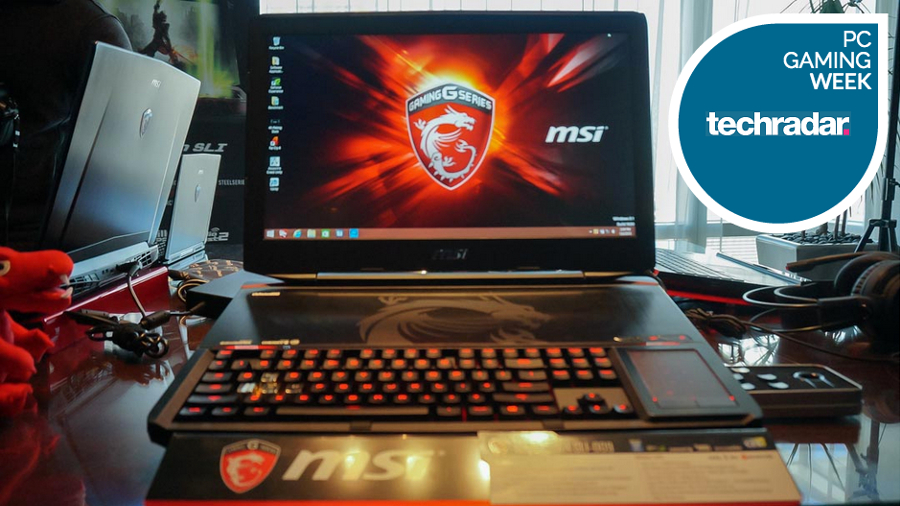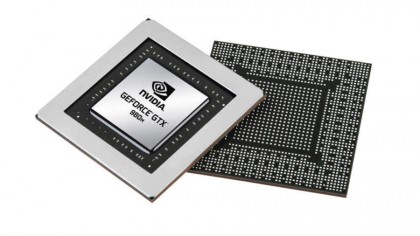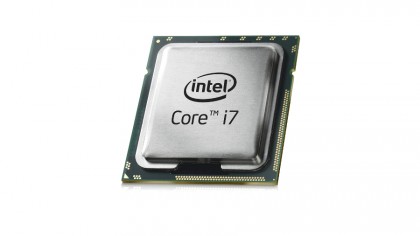Could a gaming laptop replace your desktop PC?
Power to the portable people

Sign up for breaking news, reviews, opinion, top tech deals, and more.
You are now subscribed
Your newsletter sign-up was successful
This article was provided by Maximum PC magazine for TechRadar PC Gaming Week. Click here to subscribe.
For a long time, many PC gamers scoffed at the idea of gaming laptops. After all, how could you fit all that power in such a small form factor? And even if you could somehow squeeze it in, it's got to be deafeningly loud or incredibly heavy, right?
Well, the gaming notebook sector is advancing, and it's doing so by leaps and bounds. So much so that big grey box companies are taking notice. HP, for instance, is jumping back in with its Omen gaming notebook.
- Check out the rest of our PC Gaming Week coverage
Gone are the days when a modestly powerful gaming laptop had to be a back-breaker. Many aren't much thicker than some of the sleek Ultrabooks out there now. But what of performance? The gap between desktop and mobile GPU performance is narrowing faster than a teen's teeth with braces.
So can a desktop-replacement laptop now truly live up to its name? There's only one way to find out, and that's by throwing them both into the Thunderdome. Let battle commence!

GPU
Let's face facts. As powerful as gaming laptop GPUs have become, they will always be slower than their desktop counterparts. You can always cram more power into larger components; it's simple physics. But gaming laptop GPUs are narrowing the divide, and this has been the case with every passing generation of mobile GPUs.
According to Nvidia, its Fermi-based 480M GPU only offered 40% of the performance of its 480 desktop equivalent back in 2010. Nvidia claims the gap narrowed to 60% with the Kepler-based 680M. Now Nvidia says the 980M is roughly 70–80% as fast as its current flagship GTX 980. From our internal testing (which you'll read more about on page 33), our numbers don't support those figures across the board, but they aren't terribly far off.
Sign up for breaking news, reviews, opinion, top tech deals, and more.
But performance issues aside, a glancing blow to mobile GPUs is that you can't typically swap them out. The beauty of gaming on a desktop PC is that if a beefier card comes along, you can just pop it in. In addition, while there are some dual- GPU options in the gaming notebook space, they are few and far between. And four-way mobile GPU options? Fuggedaboutit.
WINNER: DESKTOP

CPU
Just about all the high-end gaming laptops that arrive in our Lab come with quad-core i7 CPUs, but in all honesty, they hold a rinky-dink candle to their desktop counterparts. Comparing high-end mobile quad- core to high-end desktop quad-core, we're talking a delta of 40–50%. And that's not to mention the six- and eight-core CPUs desktops can offer.
Sure, some crazy beast laptops such as AVADirect's Clevo P570WM squeeze hexa-core desktop CPUs into their monstrous chassis, but notebooks like that are rare. Plus, you can't watercool them, meaning you can't unleash the beast to its full potential. To avoid overheating, laptop CPUs typically throttle themselves, and if they don't, they tend to sound like shop vacs. Not great.
But arguably the biggest win for the desktop column here is the modularity factor. You just can't beat swappable CPUs.
WINNER: DESKTOP
Sound
Years ago, laptop speakers were weak pieces of crap. But these days, while they may not please the harshest audiophiles, most high-end gaming laptops now offer plenty of volume firepower. Hell, some even offer a 2.1 setup with a bass speaker underneath the chassis. And you don't have to spend a fortune to get good audio from a gaming notebook. Lenovo's Y500 gaming series, which retail around $1,000, offer great- sounding speakers licensed by JBL.
This should be an easy win for gaming laptops, right? Unfortunately, sound goes both ways, and fan noise is a major factor. A good laptop like the Asus ROG G751 will run near silent under load, but something that's too powerful for its britches, such as the AVADirect Clevo W230ST, can sound annoyingly loud.
Your mileage may vary here, but with both ends of this spectrum to consider, we're calling it a draw.
WINNER: TIE